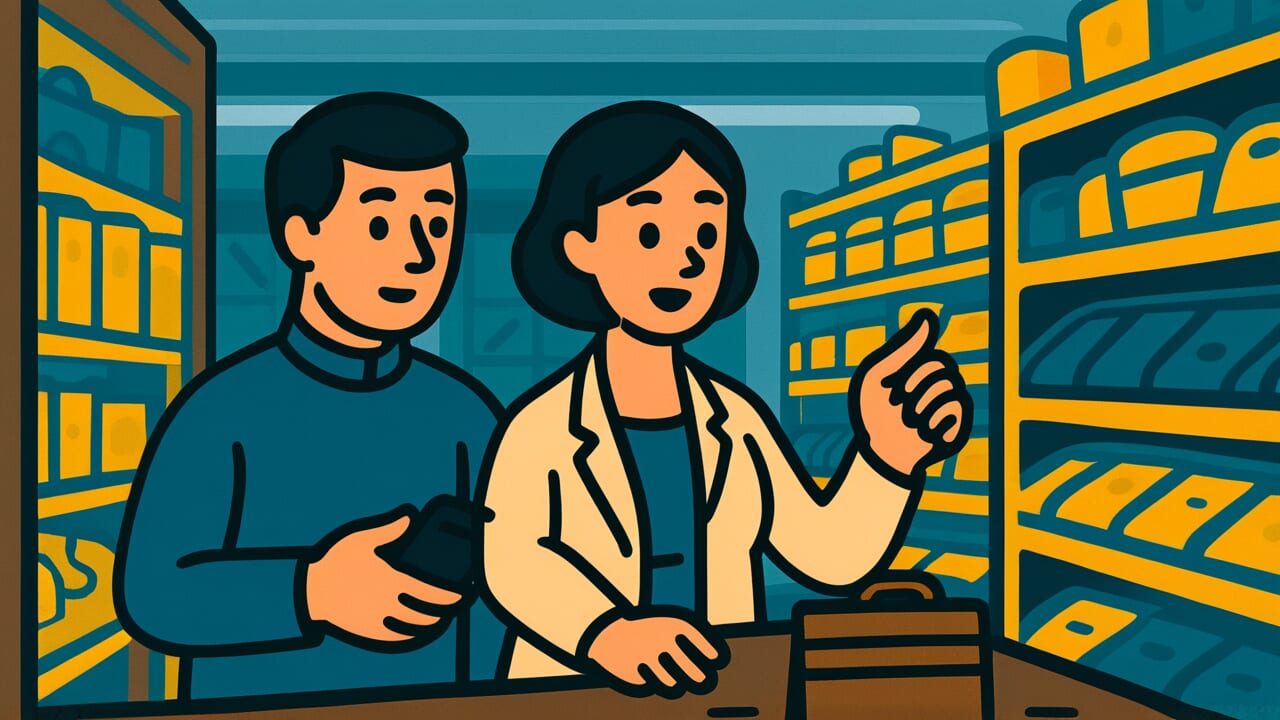How to Read “Buying disaster in the marketplace”
Ichi ni wazawai wo kau
Meaning of “Buying disaster in the marketplace”
“Buying disaster in the marketplace” means buying trouble instead of something profitable at the market. It warns against careless words and thoughtless actions that bring unexpected disaster.
This proverb is used when cautioning about behavior and speech in public. It especially warns that careless words in crowded places can cause big problems later.
You should gain good results from opportunities. But rash actions can bring disaster instead. The proverb warns against such foolishness.
Even today, careless posts on social media cause trouble. Thoughtless words in business destroy trust. These examples never stop happening.
This proverb teaches the importance of caution and thoughtfulness. Its lesson remains valid today.
Origin and Etymology
The exact source of this proverb is unclear. But we can learn much from how the words are structured.
“Ichi” means marketplace where people gather to buy and sell. Markets have always been centers of economic activity. People went there seeking profit.
“Buying” normally means paying money to get something necessary or valuable. But in this proverb, what you buy is “wazawai” – disaster or calamity.
This contradictory expression holds the core meaning of the proverb.
Everyone at the market seeks profit and good products. Yet somehow they end up buying disaster instead.
This expresses human foolishness. Poor judgment and careless words bring unexpected disaster instead of expected profit.
Behavior in the marketplace is visible to many people. Rash actions there become rumors and spread widely.
You lose trust and suffer great loss. In the merchant world especially, one careless remark or dishonest act can be fatal.
This warning likely arose from such experiences.
Usage Examples
- That casual joke angered our client. It was truly buying disaster in the marketplace.
- I should not have said those unnecessary things. This is exactly buying disaster in the marketplace.
Universal Wisdom
“Buying disaster in the marketplace” shows the ironic relationship between human actions and their results.
We all act seeking happiness and profit. Yet somehow we invite disaster instead. This contradiction reveals our essential human weakness.
People lose foresight when driven by immediate desires and emotions. We say unnecessary things caught up in the moment.
We exaggerate stories to make ourselves look bigger. We criticize others in temporary anger.
Such momentary impulses create irreversible consequences. History has taught us this lesson repeatedly.
This proverb has been passed down because humans essentially live in the “now.” Immediate desires and emotions always dominate us more strongly than future disasters.
That is why our ancestors left this warning as words. They wanted to pass it to the next generation.
The marketplace as a public space mirrors human relationships. Each word and action is evaluated there.
Trust accumulates or gets lost. This universal truth never changes across time or place.
When AI Hears This
Crowded places like markets are “hubs” in network science. Hubs are nodes where many people connect.
Information spreads very differently in such places.
Network research shows bad information spreads 1.5 to 2 times faster than good information. This comes from a human cognitive trait called “negativity bias.”
One embarrassing failure at the market spreads much faster than ordinary gossip.
More importantly, “preferential attachment” happens at hubs. People prefer topics many others already know. So once bad reputation starts spreading, it grows like a snowball.
Mathematical models show interesting results. In a market of 100 people, bad reputation told to one person normally reaches about 10 people.
But hub characteristics make it reach over 50 people. This follows power law, not linear progression.
Small initial differences create many times larger final differences.
“Buying disaster in the marketplace” is not just dangerous because many people are there. The network topology structure itself amplifies negative information.
The proverb captures this mathematical inevitability.
Lessons for Today
This proverb teaches you the weight of words and actions. In the digital age, our statements are instantly recorded.
They can spread widely. Social media, meetings, daily conversations – any place can become a “marketplace.”
What matters is taking one breath before speaking. Will these words hurt someone? Will I regret them later?
Will they damage my credibility? Asking yourself these questions protects you from many disasters.
But this does not mean becoming timid. Caution and courage can coexist.
Avoiding rashness actually gives you power to speak confidently when it truly matters.
Trust as an asset builds through daily small acts of caution.
Your words and actions are investments in your future self. Choose carefully each day, like selecting good products at the market.
Then real profit and trust will come to you, not disaster.



Comments